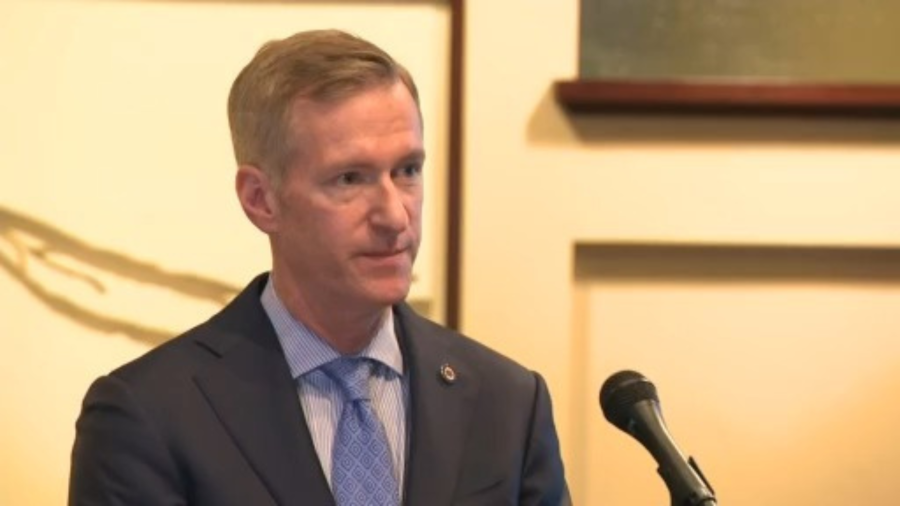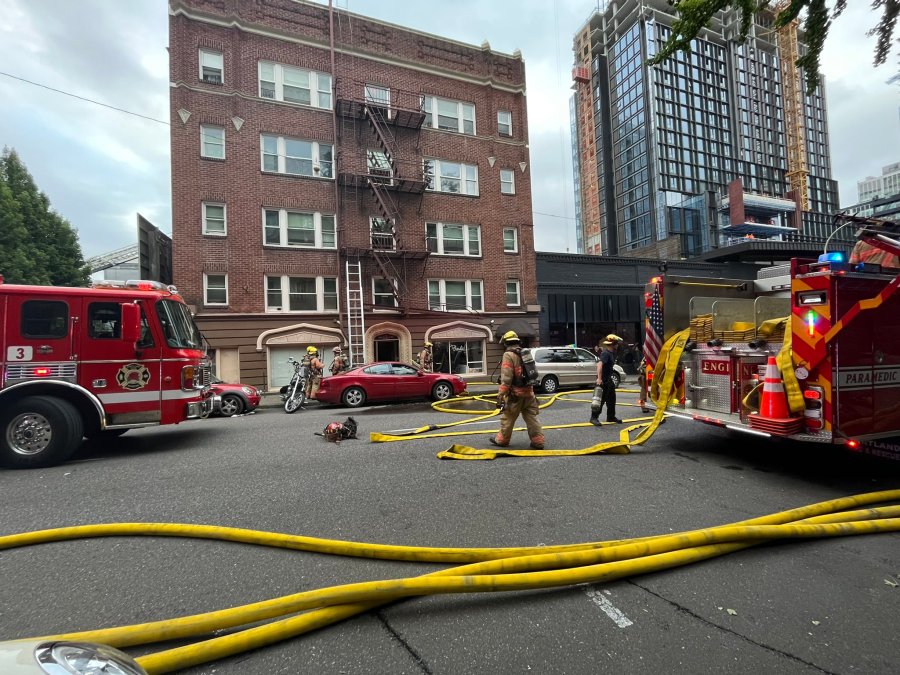PORTLAND, Ore. (KOIN) – Following an 18-month struggle to get firefighters to voluntarily work desperately needed overtime shifts amid a serious staffing shortage, the Portland City Council agreed during its April 5 meeting to settle a labor issue with Portland Fire & Rescue by agreeing to the union’s demands for overtime incentives and the ability for firefighters to wash their personal cars using city-paid water.
While the council was in agreement that city firefighters deserved an official city policy that outlined procedures for mandatory overtime shifts and provided financial incentives to firefighters who voluntarily choose to work those overtime shifts, Mayor Ted Wheeler expressed his distaste for the car washing portion of the labor agreement.
“At the risk of being unpopular: I support all of the financial aspects of this, and I really appreciate the hard work it took to close the gap, and I know that this has been a very, very difficult and very, very contentious issue,” Wheeler said. “But I would be remiss if I didn’t say there was a collective groan in my office, and I was certainly part of it, when I read about the car washing piece being included in an ordinance.”

The car wash issue stems from a Fraud Hotline report conducted by the city Auditor’s Office following a 2021 tip that PF&R firefighters were washing their personal cars with city-paid water during the downtime of their sometimes 24-hour workdays. Portland Fire Chief Sara Boone ordered city firefighters to stop washing their personal vehicles at fire stations following the report, OPB reported in January of last year. Portland Firefighter Association local 43 President Isaac McLennan spoke at Wednesday’s meeting, telling commissioners that the desired car washing privileges provide mental health benefits during lengthy and sometimes stressful shifts.
“It’s a calming thing to do when coming back and debriefing from stressful calls,” McLennan said. “This is a longstanding tradition that has existed since water, soap and cars all existed at firehouses.”
Responding to McLennan’s comments, Wheeler called the agreement’s car washing clause “frivolous,” and said that the city should have further discussed how Portland residents will receive the perk.
“I realize that this is a practice that has been around for a long time, but it made this whole discussion, in the eyes of the public, almost farcical,” Wheeler said. “Because what they expect from us in a time of crisis is for us to lead in ways that show we understand the pressures that the public is under because they’re also in crisis.”
Wheeler added that, although important, there are ways to promote mental health without the questionable use of taxpayer resources.
“There’s lots of ways that I address my own mental health needs,” he said. “I read, I workout, I take vigorous hikes. It doesn’t have to be washing your car on the job.”
Following the signing of the emergency ordinance, which was unanimously agreed upon by the Portland City Council, PF&R firefighters now have the opportunity to earn an additional $100 for every volunteer overtime shift worked through June 30, the remainder of the fiscal year. Per the agreement, the incentive is only applicable if all shift vacancies for a particular day are filled by firefighters volunteering to work overtime, and will not be awarded if vacancies are filled through mandatory callbacks. With no additional funds to offer for the overtime incentives, PF&R asked that the City of Portland use reserved labor funds to cover the added expense, which is estimated to cost as much as $483,000.

Commissioner Rene Gonzalez, who oversees PF&R as the manager of the Public Safety district, stressed the importance of the agreement as the city attempts to manage the bureau’s staffing woes.
“This agreement provides fair compensation for Portland’s firefighters for unprecedented levels of forced overtime,” Gonzalez said. “This is a much-needed adjustment to get us through the year before we can address, in a more fundamental way, deeply rooted problems in the Fire Bureau’s staffing model.”
Immediately following the passing of the ordinance, Portland firefighters are once again permitted to wash their personal vehicles with firehouse hoses — settling an existing grievance that was set for an arbitration. The bureau has also agreed to waive all previous and pending disciplinary action taken against firefighters who refused to work “mandatory” overtime shifts before there were proper disciplinary guidelines in place.
“[The car washing clause] brought something to the table that I wish was not in this ordinance, I want to be very clear on that point,” Wheeler said before approving the ordinance. “I’ll support the financial package because I think the financial package is important. I can live with the car washing because it’s de minimis … Symbolically, it’s a dog to tell people they can come to work on the public dime and wash their cars.”